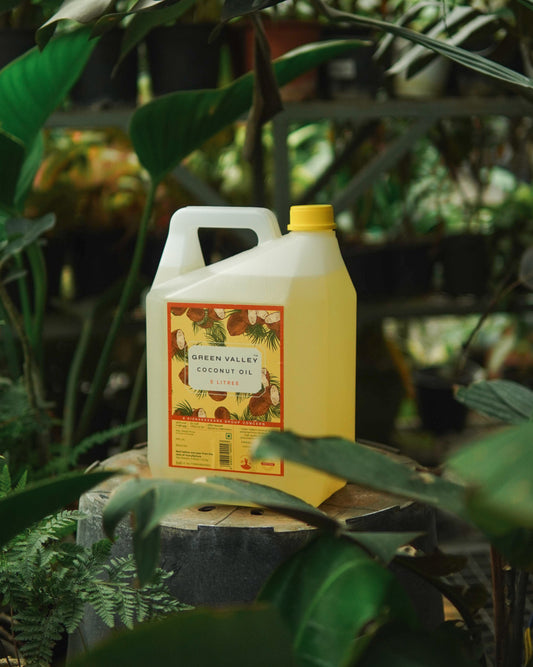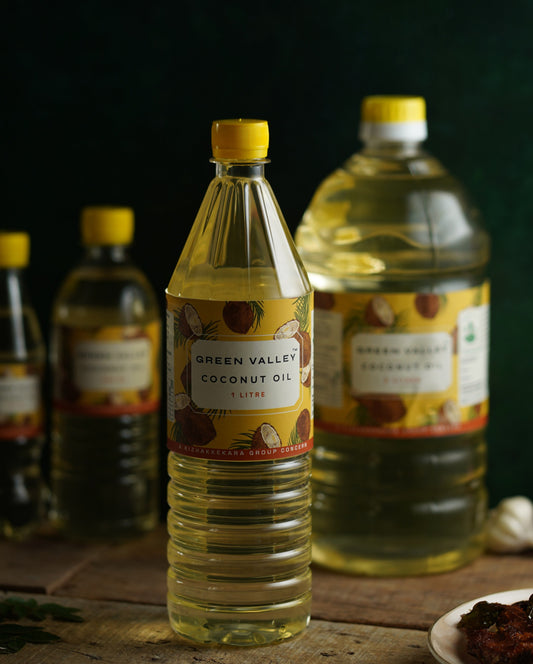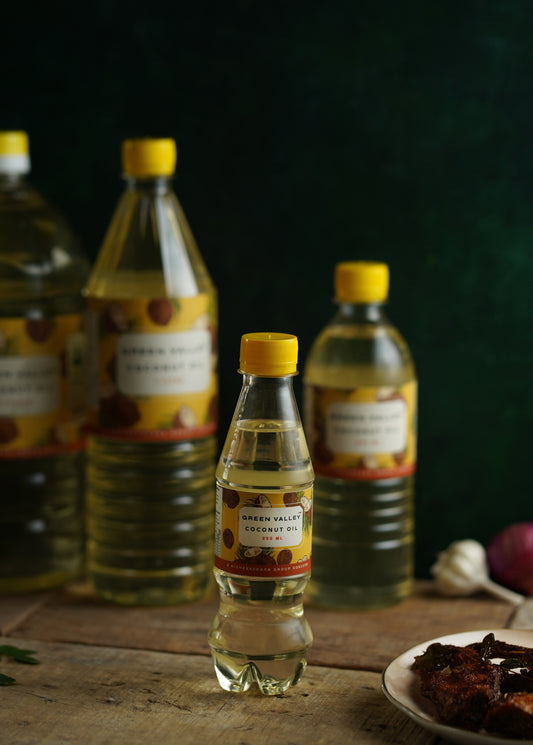If you’ve ever battled eczema, you know the itch can be as frustrating as binge-watching buffering TV. The redness. The cracking. The urge to scratch until your fingers regret it. While prescription creams help, many people also turn to gentle, natural solutions at home. One of the most beloved—and scientifically supported—options? Virgin coconut oil. Here’s why, plus seven other easy remedies to calm your skin flare-ups.
1. Virgin Coconut Oil – Nature’s Soothing Warrior
Why It Works
-
Deep hydration: VCO is rich in lauric, capric, and caprylic acids, forming a barrier that locks moisture into dry, eczema-prone skin.
-
Barrier repair: Studies show it increases levels of filaggrin and aquaporin‑3—proteins vital to skin hydration, while lowering Trans‑Epidermal Water Loss (TEWL), a major eczema symptom.
-
Antimicrobial action: The lauric acid converts to monolaurin, fighting common eczema-related pathogens like Staphylococcus aureus.
Scientific Proof
A pediatric clinical trial compared twice‑daily VCO to mineral oil. After eight weeks, the coconut group saw a 68 % drop in eczema severity, compared to 38 % in the mineral oil group. Adults see significant improvements too, with fewer flare-ups and lower microbial spots.
How To Use It
-
Choose virgin or cold‑pressed coconut oil, no fragrances or alcohol.
-
Pat your skin dry after lukewarm showers, then gently massage in a thin layer (mild sticklers only need 1–2 tbsp/day).
-
Continue daily or use twice daily during flare-ups.
Patch-Test First
Some people—about 10% based on a popular eczema forum—report worsened symptoms or allergic reactions. Always test a small area first and stop if irritation occurs.
2. Colloidal Oatmeal Baths
Soothing and scientifically supported, a warm bath with a cup of finely ground oats can calm inflamed skin, relieve itching, and support the skin barrier. Mix and soak for 15–20 minutes, pat dry, and apply coconut oil immediately.
3. Sunflower Seed Oil
A lesser-known but effective alternative. Cold-pressed sunflower oil (20% linoleic acid) has been shown to improve barrier function in eczema by boosting ceramide production, though it lacks coconut’s antimicrobial punch.
4. Humidifiers And Lukewarm Showers
Dry air and hot showers can turn eczema-prone skin into the Sahara. Use a humidifier (especially overnight), keep baths lukewarm (20 min max), and moisturise within three minutes of showering to lock in hydration.
5. Gentle, Fragrance‑Free Care Products
Switch to mild, soap-free cleansers and fragrance‑free clothing and detergents to avoid triggering flare-ups. Think cotton, not wool or synthetics, and avoid skin care with dyes or alcohol.
6. Anti‑Inflammatory Diet And Hydration
Inflammation from eczema can worsen internally. A Mediterranean-style diet rich in fruits, veggies, omega‑3s, and low in sugar supports skin health. Hydration matters too, keep water close at hand.
7. Stress Management
Chronic stress spikes cortisol and flares eczema. Practices like meditation, breathing exercises, yoga or light workouts help calm both the mind and skin. Even short daily resets can work wonders.
8. Topical Honey and Calendula
Not as mainstream, but potent. Raw honey and calendula have anti-inflammatory and antimicrobial properties, ideal for soothing flare-ups. Add a smear before bedtime and rinse gently with lukewarm water in the morning.
9. Bleach Baths (Only Under Doctor Advice)
Diluted bleach soaks (¼–½ cup bleach in a full bath) can reduce eczema-related bacteria in resistant cases. Use it with caution, only when prescribed, and follow your dermatologist’s instructions.
Expert Perspectives
-
The National Eczema Association recommends Virgin Coconut Oil as a daily moisturiser that may help prevent flares, but notes it’s not a primary flare treatment (pmc.ncbi.nlm.nih.gov).
-
A 2024 Verywell Health review highlighted its hydration, antimicrobial and barrier-strengthening benefits, advising cautious, yet confident, use on mild to moderate eczema.
Putting It All Together: Your Eczema SOS Routine
Morning:
-
Shower lukewarm, pat dry
-
Smear ½ tsp virgin coconut oil on damp skin
During the Day:
-
Use a humidifier
-
Sip water; avoid known triggers
Evening:
-
Colloidal oatmeal or optional honey/calendula soaks
-
Reapply coconut oil before bed
Weekly:
-
Use a gentle exfoliating mitt
-
Patch-test new products away from flares
Pro tip: Seal it all in with gentle cotton gloves or socks overnight if extra smooth skin is your goal.
When to See a Doctor
If you experience:
-
Cracked, weeping or extremely painful skin
-
Signs of infection (oozing, crusting, fever)
-
No improvement with 4–6 weeks of home care
…consult a dermatologist. Coconut oil and home remedies support, not replace, prescription treatments.
Home remedies—especially virgin coconut oil—aren’t magic, but they’re mighty when used consistently. They help soothe itching, restore barrier function, and fend off infections—and they often smell like vacation. Used as part of a daily routine, alongside stress relief, diet, and gentle bathing habits, they can reduce flare frequency and support healing over time.
Just remember: test first, listen to your skin, and have a backup plan with your doctor. With a smart, coconut-oil–inclusive approach, you might just learn to make eczema a little less of a drama queen—and your skin a lot more thankful.








